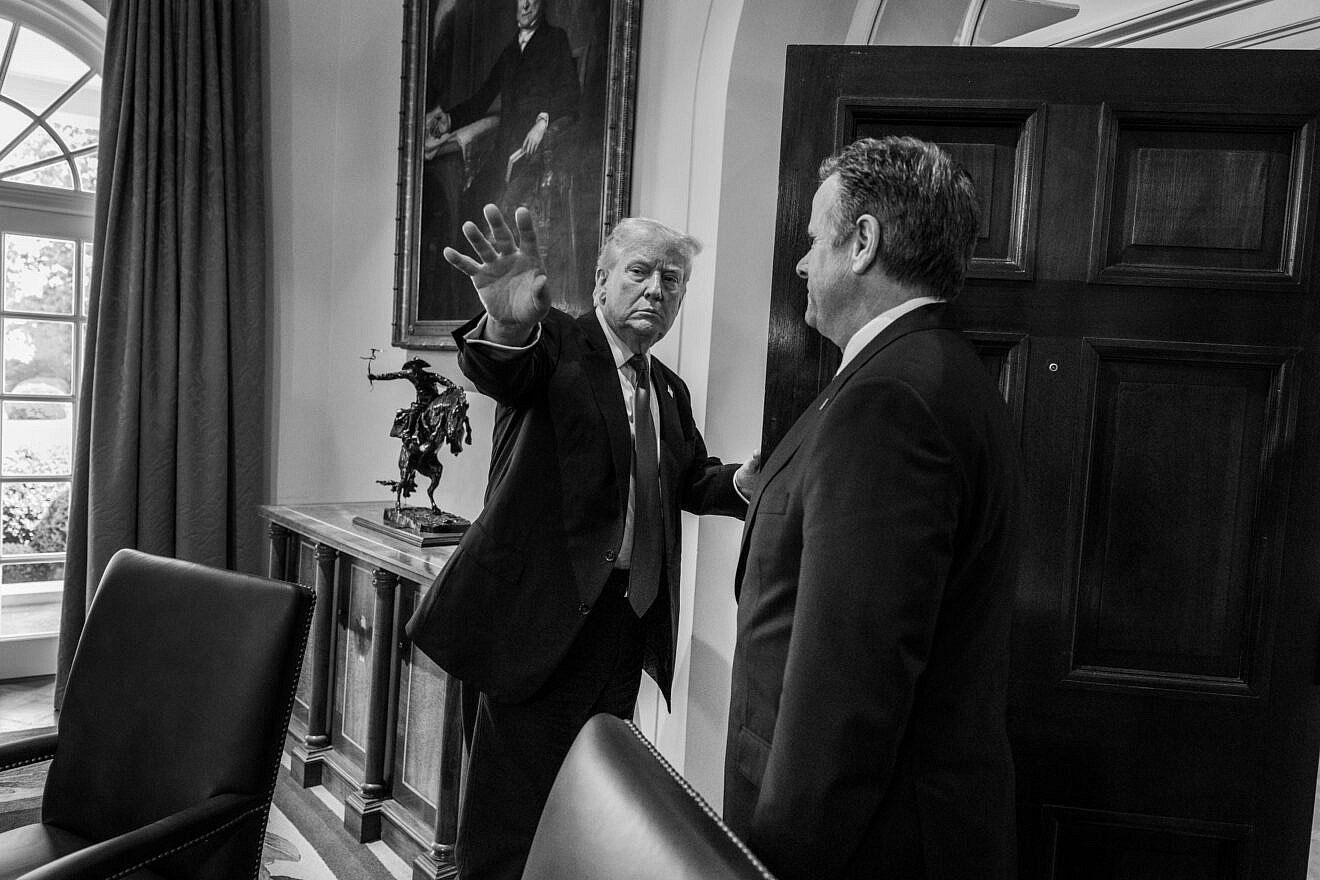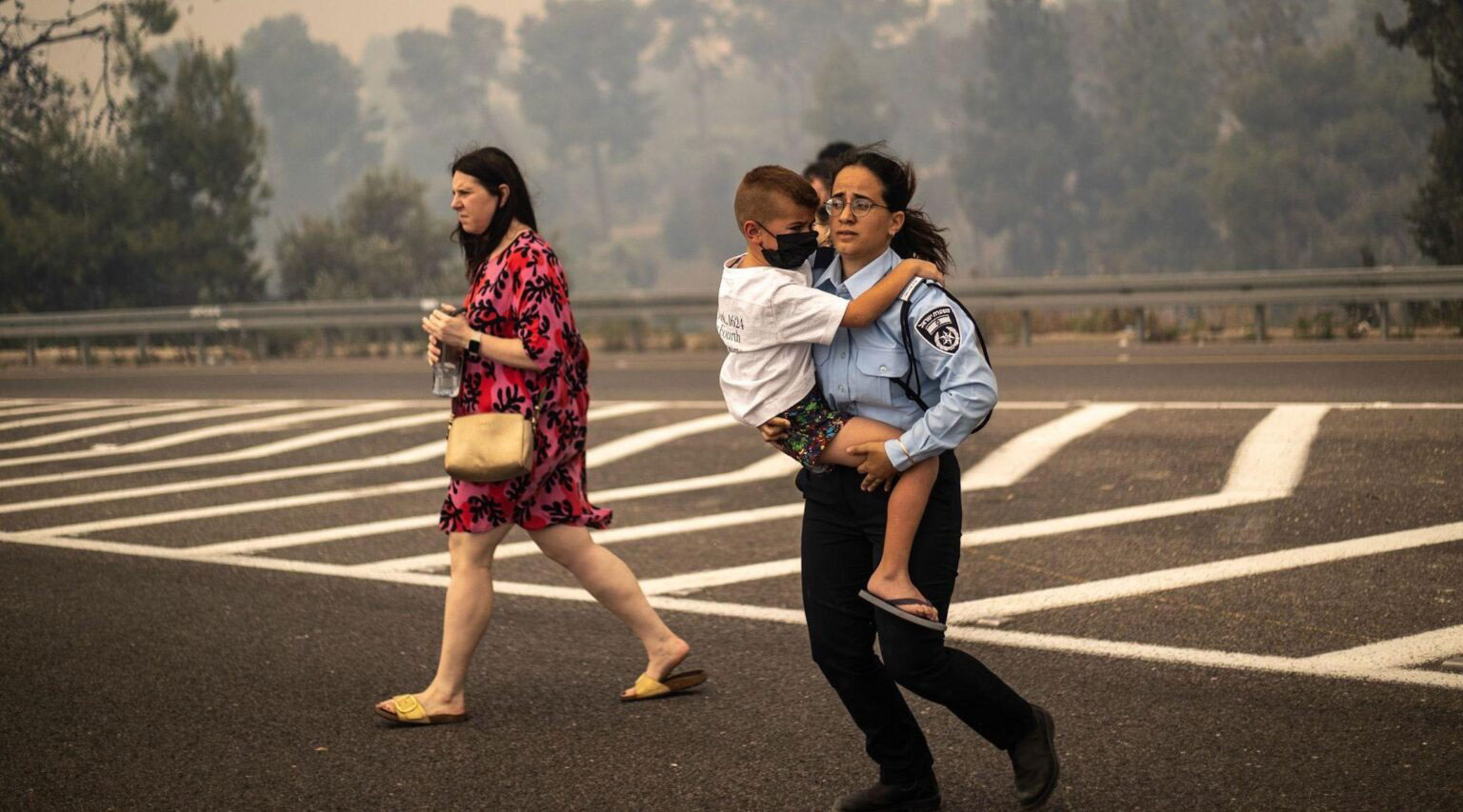
Amichai Chikli, head of Israel’s Diaspora Affairs and Combat Antisemitism Ministry, announced Monday an initiative to increase Jewish day school enrollment in North America
(JTA) — Two Israeli ministers who have built relationships with Jewish leaders in the Diaspora canceled or shifted meetings with American Jewish organizations at the last minute in the face of protests.
One of the ministers, however, was still confronted by a demonstration, and one protestor was thrown to the ground by security guards.
Amichai Chikli, the minister of Diaspora affairs, moved a meeting on Thursday that was to be hosted by the Washington, D.C., area’s Jewish federation. The meeting was initially reported to be canceled, but his spokesperson told the Jerusalem Post that it was taking place but had been moved to a secret location. Chikli had previously said he couldn’t make the meeting because it conflicted with his flight home.
“The meeting will be attended by senior Jewish leadership representing all of American Jewry, along with rabbis and heads of local communities,” Chikli said in a statement.
Nir Barkat, the economy minister and former Jerusalem mayor and tech entrepreneur, canceled an event at a Boston-area synagogue scheduled for the same day.
The abrupt changes come after a week during which protests, often led by Israeli expatriates, have repeatedly disrupted the activities of Israeli officials visiting the United States for a pro-Israel parade in New York City last Sunday. The protests aim to support mass Israeli street demonstrations against the right-wing government’s effort to significantly weaken the judiciary.
In Boston, protesters confronted Barkat in his hotel, and a video posted to social media showed a protester rush past security toward the minister, whose guards threw him to the ground. The protester was hospitalized and questioned by police. Barkat addressed the incident online by writing, “A political murder is only a matter of time in the state of Israel.”
“Thanks to the protest, there are those who have allowed the blood of elected officials to flow,” he wrote. “We’re on a slippery and dangerous slope. I am grateful to the guards of the personal security detail who rebuffed the attacker and prevented injury to me. Violence is the crumbling of the foundations of democracy.”
Barkat’s event was to have taken place at Temple Beth Elohim, a Reform synagogue in Wellesley, a suburb of Boston. The city’s Israeli consulate had rented the space for the speech weeks in advance, according to Haaretz, and when the congregation’s rabbi heard of the event, he said he planned to join in protests.
“It is very unusual that we find protesters outside our Temple building, even though a robust debate is consistent with Israel’s vibrant democracy and our Jewish tradition,” said Rabbi Joel Sisenwine, according to Haaretz. “I truly believe that the current judicial reform proposal, as currently stated, is a threat to Israel’s democracy.”
Protests have dogged the itineraries of several Israelis in the U.S. over the past week. In recent days, a government minister canceled a speech in Los Angeles, and Israeli officials in New York were jeered both within and outside events, at Sunday’s parade and on the streets. Barkat was interrupted by protesters on Monday at a conference hosted by the Jerusalem Post, and Chikli was heckled at the parade, where he appeared to mock protesters.
A number of American Jews, among them organizations and individuals that historically have refrained from criticizing Israel, have spoken out against the judicial reforms and in some cases have joined protests in Israel and in the United States. They see the courts as a bulwark protecting vulnerable populations, including women, LGBTQ people, Arabs and non-Orthodox Jews.




